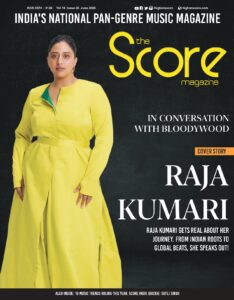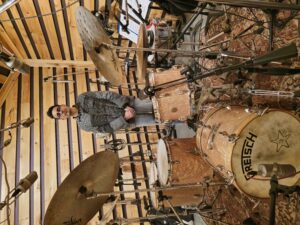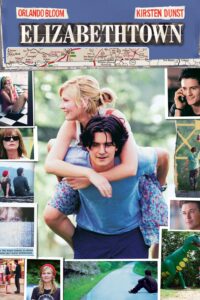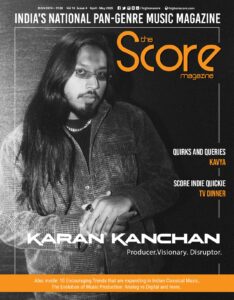Anybody who has heard the scores of Ram Leela, Bajirao Mastani, and the most recent, Padmavaat will undoubtedly agree on the fact that the background scores multiplied the visual grandeur and vastly helped in telling the tale in a more engaging manner without being sidelined as just mere “background music”. Mumbai based composer Sanchit Balhara is a Trinity College London and Point Blank Music College Graduate having studied classical music, piano, composition under eminent Grammy winning and nominated teachers like Phil Ramacon and Ian Rossiter. His world experiences and sensibilities directly translate into his music which doesn’t sound like anything typical! Although he is just three movies old into the Bollywood industry, it comes as no surprise that Balsara has already done his rounds at the awards by winning the IIFA, GIMA, Mirchi Music Awards, and Zee Cine Awards amongst other recognitions. In a brief conversation with the Score Magazine, Balhara breaks down his creative process and the much famed “Jauhar Theme” from Padmaavat.
Tell us about your beginnings and musical influences
I am brought up in a musical family with my Father and brother both being in music. Initially, It was my father’s passion in music which got me interested. Later on when I was growing up, I started listening to legendary Hollywood score composers like John Williams, James Horner, Thomas Newman, Hans Zimmer etc.
Why scoring or composition? What drew you towards this?
I was always fascinated with the way how a score makes you to believe in the emotions of the environment a director has tried to portray with the film. I always felt a film is like a life without soul. Being a very emotional person, I felt this form of music would help me explore the emotions of life better than any thing else and gradually I went too deep into it to eventually make scoring my profession.
Your biggest take away from your musical instances with Sanjay Leela Bhansali.
Sanjay Sir is a genius and master of Art. Whichever style of artist you are, whether a composer, writer, painter, cinematographer etc. , he has a masterly skill to collaborate with you. I feel working with him has made me a more mature composer in my own way. In this whole process, I was able to explore my music more than anytime before.
Do you think Indian directors lack good musical taste and vision unlike virtuosos in the west?
I feel taste in Art should never be categorised to good or bad, Its all about liking or not liking something. Music is a direct way of communicating with emotions. But when it comes to style of scoring to any given industry, its about the environment of style and standards the industry has evolved into. Indian film’s market wasn’t as big as western film’s was, so the style of scoring was also limited to the styles of films make for a particular region. But as now we’re getting more and more global, our creative possibilities(which includes the style of scoring) are too getting more wide.
Take us through the creative process of curating the score for Padmaavat and all the collaborations that took place
Padmaavat’s score was highly challenging considering I wanted it to sound different from my previous Period film “Bajirao Mastani”. I wanted to bring this difference in both composition way and as well the way its going to sound. I began my score by first getting the main theme of the film( also known as Jauhar theme) composition representing the whole set of great emotions going in the character’s head. Rather than having any instrument to play the theme, I thought I would like It to be sung in humming as I feel humming is a way of singing anyone can attempt and easily relate to. Once my composition was set, the next challenge was the rest of arrangement. I wanted the film to have all the authentic touch as possible but yet sound fresh so that today’s generation can relate to. While doing so, I had many challenges to not let the score sound alien to the period the film was made for. In traditional instruments, I used a lot of “Sindhi sarangi, Algoze, Murchang, Rajasthani Dhol, Murali and Folk singing. And representing the other culture of the film (the Khilji’s) I used a lot of folk instruments from turkey, Iran and Afghanistan as this was the route Khiljis had travelled through to finally settle in Delhi. But now I had to find a way to weave both these traditions into one film score, and to do so I blended the whole score with European classical instruments like strings section and Brass section. All these things were not a part of any plan but happened with evolution into the film.
How do you see the scope of orchestral music raising in Indian film scores?
I feel the music is getting more mature with time as the standards of film making is. Whether its orchestral or not, a score should be able to justify the visuals. The most important part of music is to be original and authentic. Now days we see a lot of music in our industry is either a direct rip off of a known western music piece of almost very similar. Even if we have go western way of scoring, we can always make original Indian compositions keeping the vibe of orchestral standards western(if required).
Going further, how do you see your music evolving?
Knowing Indian music for sometime and still exploring more, I am finding we have a lot to give to the world then just take from. I would one day hope to see Authentic Indian music becoming as a main stream score genre at international market. That’s the only we can make our music stand out.








